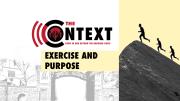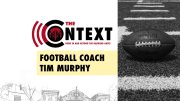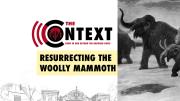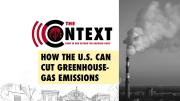This is the fifth post of "The Context"—a biweekly series of archival stories—offering our readers a useful background to some of the most important subjects in the news today. We hope you enjoy it.
When studies describe the benefits of exercise, they often do so in negative terms. Physical activity makes men and women less likely to develop depression and anxiety, for instance. The reverse is true too: people who feel depressed or anxious tend not to work out.
But a recent article in The New York Times highlights research focused on the positive emotions linked to exercise. Led by Ayse Yemiscigil, a postdoctoral student at Harvard’s Human Flourishing Program, the study describes the relationship between exercise and a sense of purpose. “Active people often talk about how exercise gives structure and meaning to their lives,” Yemiscigil told the Times. She sought to study that effect.
Using data from the longitudinal Health and Retirement Study at the University of Michigan, Yemiscigil and a colleague reported a modest, but statistically significant, relationship between people’s physical activity and self-reported sense of purpose. Though the findings are associational and not causal, Yemiscigil stands by her study’s conclusion. People report more self-efficacy after they take up exercise, she said, and they want to “be healthy and live long enough” to accomplish their goals.
This article reminded me of “The Deadliest Sin,” a 2004 feature by managing editor Jonathan Shaw on the power of exercise. His introduction is one the most memorable ones I can remember in our pages.
In the bottle before you is a pill, a marvel of modern medicine that will regulate gene transcription throughout your body, helping prevent heart disease, stroke, diabetes, obesity, and 12 kinds of cancer — plus gallstones and diverticulitis. Expect the pill to improve your strength and balance as well as your blood lipid profile. Your bones will become stronger. You'll grow new capillaries in your heart, your skeletal muscles, and your brain, improving blood flow and the delivery of oxygen and nutrients. Your attention span will increase. If you have arthritis, your symptoms will improve. The pill will help you regulate your appetite and you'll probably find you prefer healthier foods. You'll feel better, younger even, and you will test younger according to a variety of physiologic measures. Your blood volume will increase, and you'll burn fats better. Even your immune system will be stimulated. There is just one catch.
There's no such pill. The prescription is exercise.
The article touches on several elements of physical activity and health, from how much and what type of exercise is best, to how the body responds to exercise at a cellular level. The conclusion aligns nicely with the recent study, discussing the sense of purpose, competence, and accomplishment people get from exercise. “People don’t get the fact that our front cortex evolved to make us better movers,” John Ratey, an associate clinical professor of psychiatry at Harvard Medical School, told Shaw. “The higher functions—the executive function, thinking, abstraction, and philosophy—all evolved from the moving brain.”
Shaw also wrote this excellent feature, “Raw and Red Hot,” about the many chronic conditions —cardiovascular disease, diabetes, dementia—linked to inflammation. Unsurprisingly, a major way to reduce this inflammation is through exercise. This more recent piece on exercise’s inflammation-dampening effect on stem cells is also a good, quick read. I hope you enjoy.
~Jacob Sweet, Associate Editor
More from “The Context”
- Arthur C. Brooks on "Revenge Bedtime Procrastiination": Presenting our best archival work on sleep
- Universities Pushed to Reckon with Slavery: Students and activists advocate for institutional change.
- Simpsons Writer John Swartzwelder on Comedy: Sharing some of our best work on comedians and their craft
- Daniel Lieberman on Food Addiction: Framing the news with our best articles on diet and health








